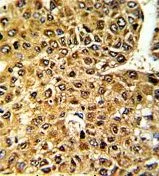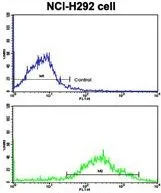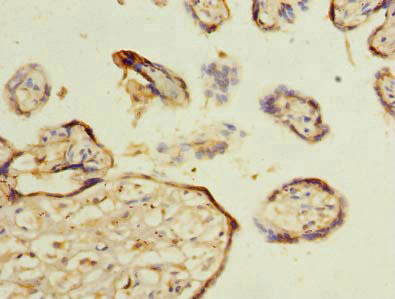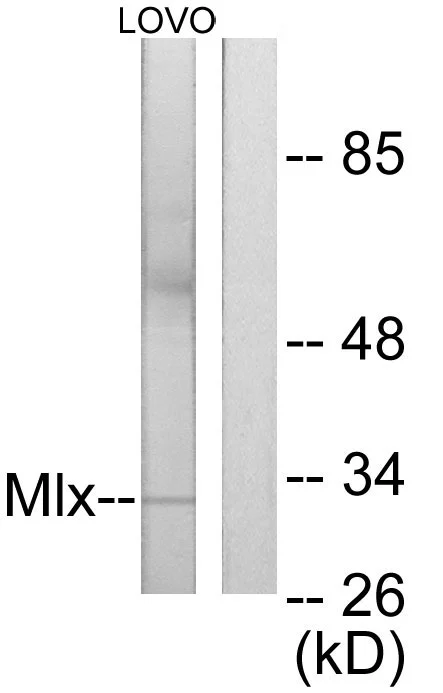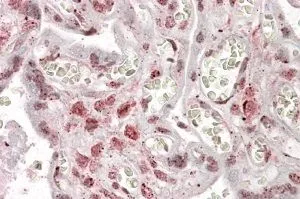
WB analysis of MDA-MB231 cell lysate (35ug/lane) using GTX81125 MLX antibody, Internal.
MLX antibody, Internal
GTX81125
ApplicationsFlow Cytometry, Western Blot, ImmunoHistoChemistry, ImmunoHistoChemistry Paraffin
Product group Antibodies
ReactivityHuman
TargetMLX
Overview
- SupplierGeneTex
- Product NameMLX antibody, Internal
- Delivery Days Customer9
- Application Supplier NoteWB: 1:1000. IHC-P: 1:50-1:100. FCM: 1:10-1:50. *Optimal dilutions/concentrations should be determined by the researcher.Not tested in other applications.
- ApplicationsFlow Cytometry, Western Blot, ImmunoHistoChemistry, ImmunoHistoChemistry Paraffin
- CertificationResearch Use Only
- ClonalityPolyclonal
- ConjugateUnconjugated
- Gene ID6945
- Target nameMLX
- Target descriptionMAX dimerization protein MLX
- Target synonymsMAD7, MXD7, TCFL4, TF4, bHLHd13, max-like protein X, BigMax protein, MAX-like bHLHZIP protein, MLX, MAX dimerization protein, class D basic helix-loop-helix protein 13, transcription factor-like protein 4
- HostRabbit
- IsotypeIgG
- Protein IDQ9UH92
- Protein NameMax-like protein X
- Scientific DescriptionThe product of this gene belongs to the family of basic helix-loop-helix leucine zipper (bHLH-Zip) transcription factors. These factors form heterodimers with Mad proteins and play a role in proliferation, determination and differentiation. This gene product may act to diversify Mad family function by its restricted association with a subset of the Mad family of transcriptional repressors, namely, Mad1 and Mad4. Alternatively spliced transcript variants encoding different isoforms have been identified for this gene. [provided by RefSeq, Jul 2008]
- ReactivityHuman
- Storage Instruction-20°C or -80°C,2°C to 8°C
- UNSPSC41116161


